Tintin, the Moral Compass of a Popular Hero
At a time when people are seeking steady bearings in a shifting world, Tintin remains a singular figure: both the archetype of a demanding moral code and the hero of wild adventures; he thus embodies that joyful and determined figure that makes him an icon for all ages.
An undeniable model of courage, Tintin was originally born from a commission by Abbé Wallez, who sought to educate young people against the Bolshevik threat: thus began his journey in Tintin in the Land of the Soviets.
Over time, however, the figure of the young reporter drifted away from his ideological origins. In some circles, he is no longer seen merely as a champion of traditional values but has become a kind of universal character. Indeed, the religious dimension seems largely absent from the fast-paced plots of his globe-trotting adventures. Interviewed by Bernard Pivot on the television program Apostrophes in 1979, Hergé playfully dodged the question. “I don’t know. I think it would slow down the action,” he said. Perhaps that was never the most important part of the story after all.
And yet... As a now timeless work, the adventures of the young Belgian reporter continue to inspire and challenge the world. Both adventurer, justice-seeker, investigator, and fighter when necessary, our boy-scout-like hero—is he truly as flawless as he seems?
In this article, we will explore the foundations, ambiguities, and ethics of one of the most iconic characters of the 20th century.
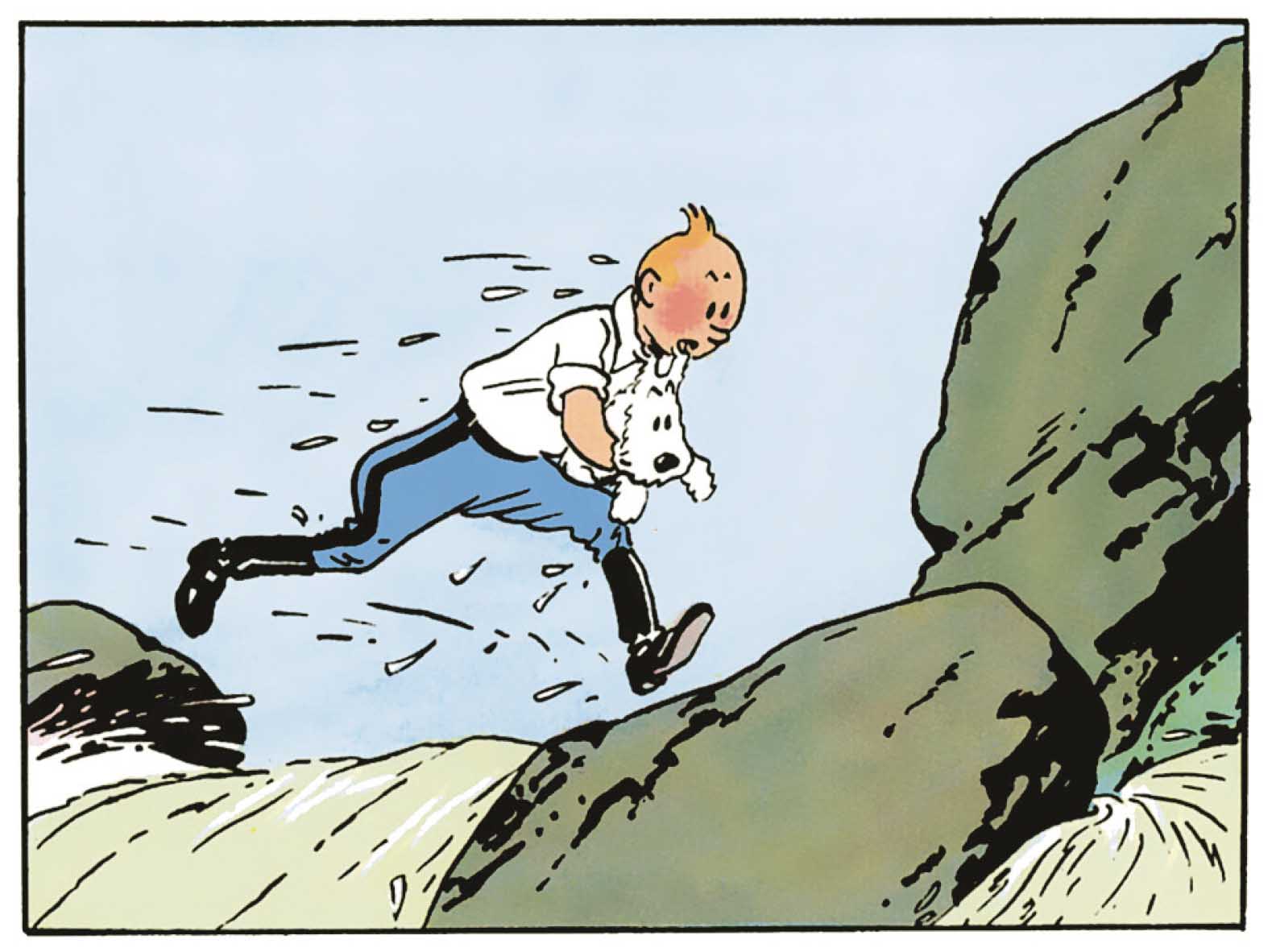
A Hero Who Acts, Not Preaches
Since his first appearance in 1929 in Tintin in the Land of the Soviets, Tintin has been portrayed as a young man without superpowers, without great wealth, without any particular status—yet endowed with a remarkable inner moral strength. True, his dog Snowy talks to him, a whimsical trait that owes nothing to any divine force. What sets Tintin apart is not so much what he says, but what he does. And this Tintin is a man of action—tirelessly so.
Often described as “an example of integrity, loyalty, courage, and altruism,” Tintin is a hero who, far from indulging in pompous speeches or grand declarations, takes concrete action. He becomes the shoulder on which Captain Haddock leans in the burning desert of The Crab with the Golden Claws, saves his friend Chang from drowning in The Blue Lotus, and even tends to the injured arm of the gorilla that once threatened him in The Black Island—guided not by obligation, but by heartfelt instinct.
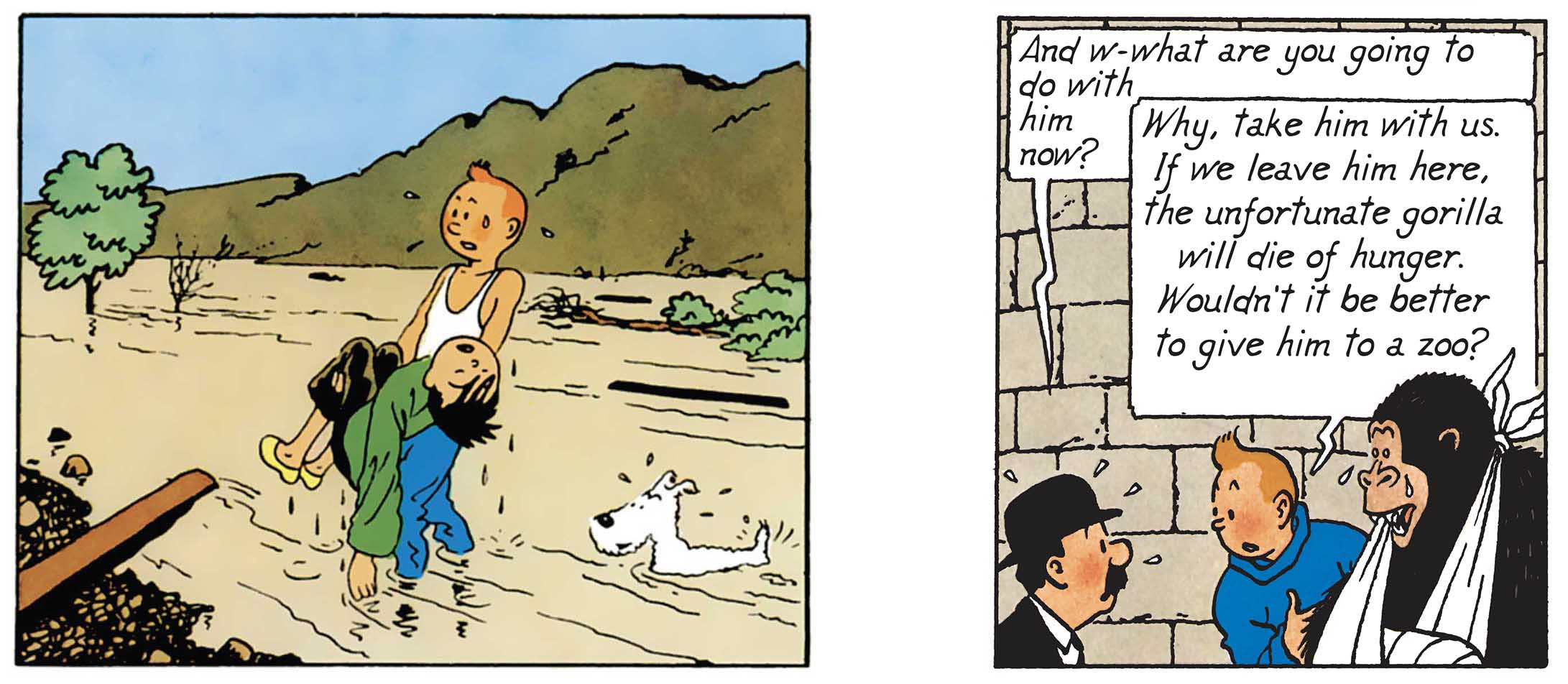
In Tintin, morality is active, embodied, discreet. There are no lofty theories: it is expressed through deeds. Even with animals, he displays a remarkable ease. One only has to observe Snowy, who responds to him with a disarming naturalness, as if their bond belonged to a different kind of logic—one that simply goes without saying.
Courage: An Everyday Virtue
In an interview for Philonomist, Gaëlle Jeanmart, professor of political and moral philosophy at the University of Liège, describes Tintin’s courage as “heroic, visible, and manifest.” Though she may criticize a certain excess (perhaps with a modern eye), Tintin is neither a daredevil nor a naïve idealist.
Clear-sighted yet resolutely committed, he faces trials with unwavering calm, determination, and audacity—whether imprisoned, lost in the desert, stranded atop the Himalayas, or caught in the middle of a coup.
We have seen him adopt a range of disguises and tricks to escape danger under all circumstances (see Disguises and Ruses).
Yet never does Tintin present himself as a hero; it is by remaining true to what he believes is right that he becomes one. His courage is exercised as much in action as in relationships, carried by that rare ability to believe in others—even against all odds.
In Tintin in America, the young reporter displays extraordinary bravery. Clinging to the side of a skyscraper, he edges along a narrow ledge, several stories above the ground, to outwit an armed criminal. Tied to a stake, he does not flinch when a tomahawk lands just inches from his head, even finding the composure to discreetly throw resin balls at his captors. Even when bound to railroad tracks with a speeding train approaching, he pursues his investigation with fierce tenacity.
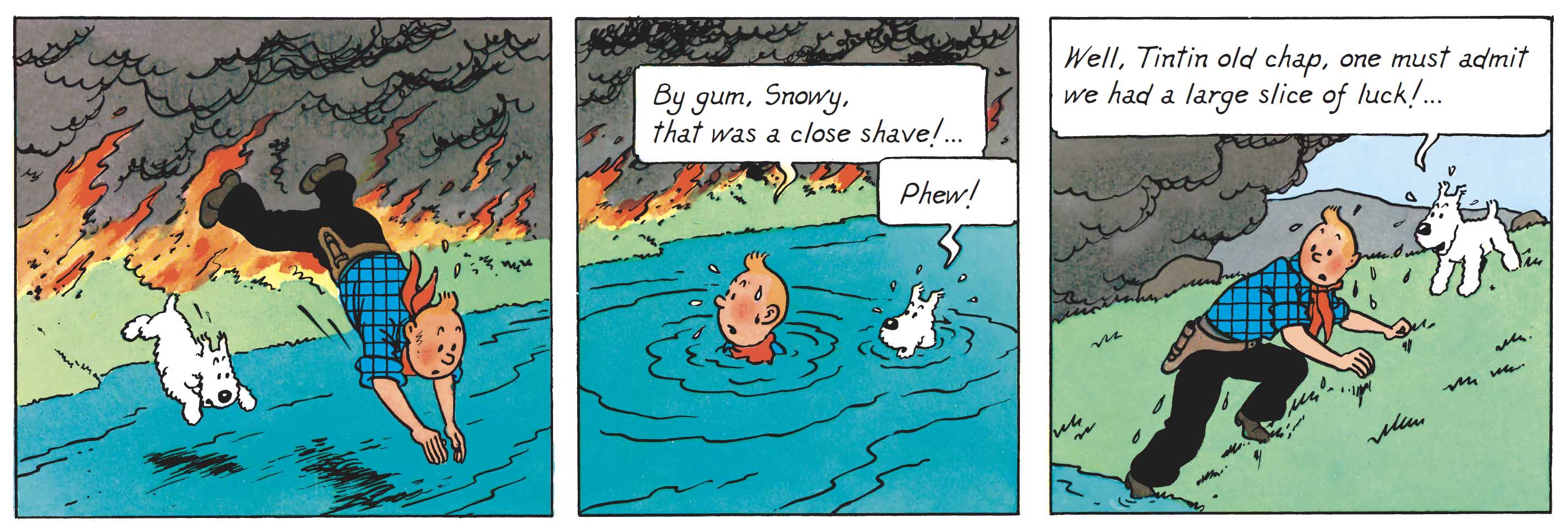
Threatened, restrained, nearly drowned—Tintin forges ahead without ever wavering. Adversity slides off him like water off stone: he carries with him youth, boldness, and that fearless lightness of spirit found only in souls untouched by doubt.
A character without psychology?
The question posed by France Culture in its podcast — "Is Tintin a Catholic hero?" — is a legitimate one. Although Hergé gradually distanced himself from the Church over time, the values underpinning his work remain deeply rooted in a Christian and European cultural tradition.
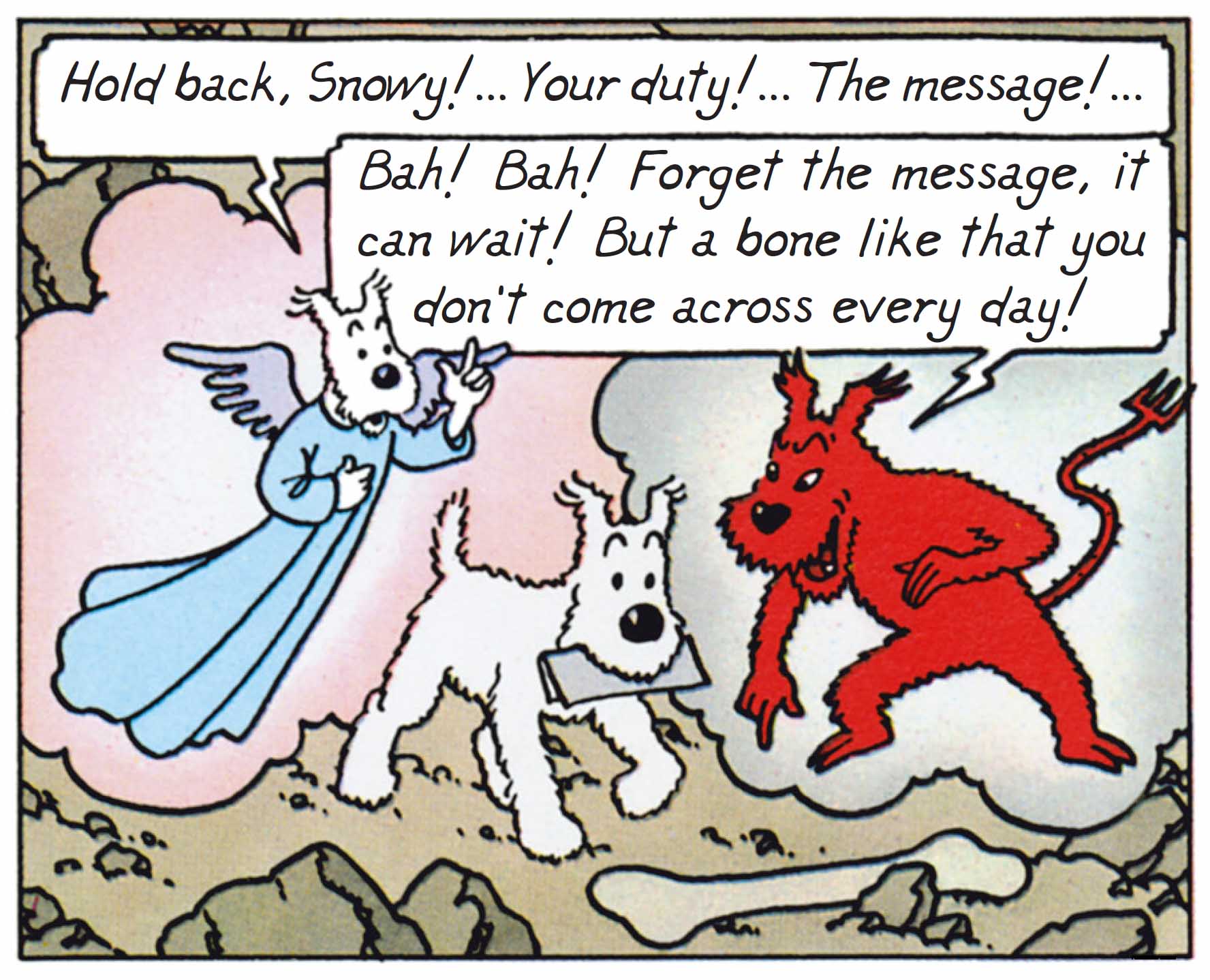
Tintin embodies values of gentleness, kindness, and purity of intention. A defender of the weak, he rejects vengeance and brings comfort to those who suffer, always acting with compassion and without judgment. Above all, he sacrifices his own safety for others — a dynamic of self-giving inspired by Christian faith. Stranded in the desert, Haddock even mistakes Tintin for a bottle of wine: proof that hope sometimes takes unexpected forms.
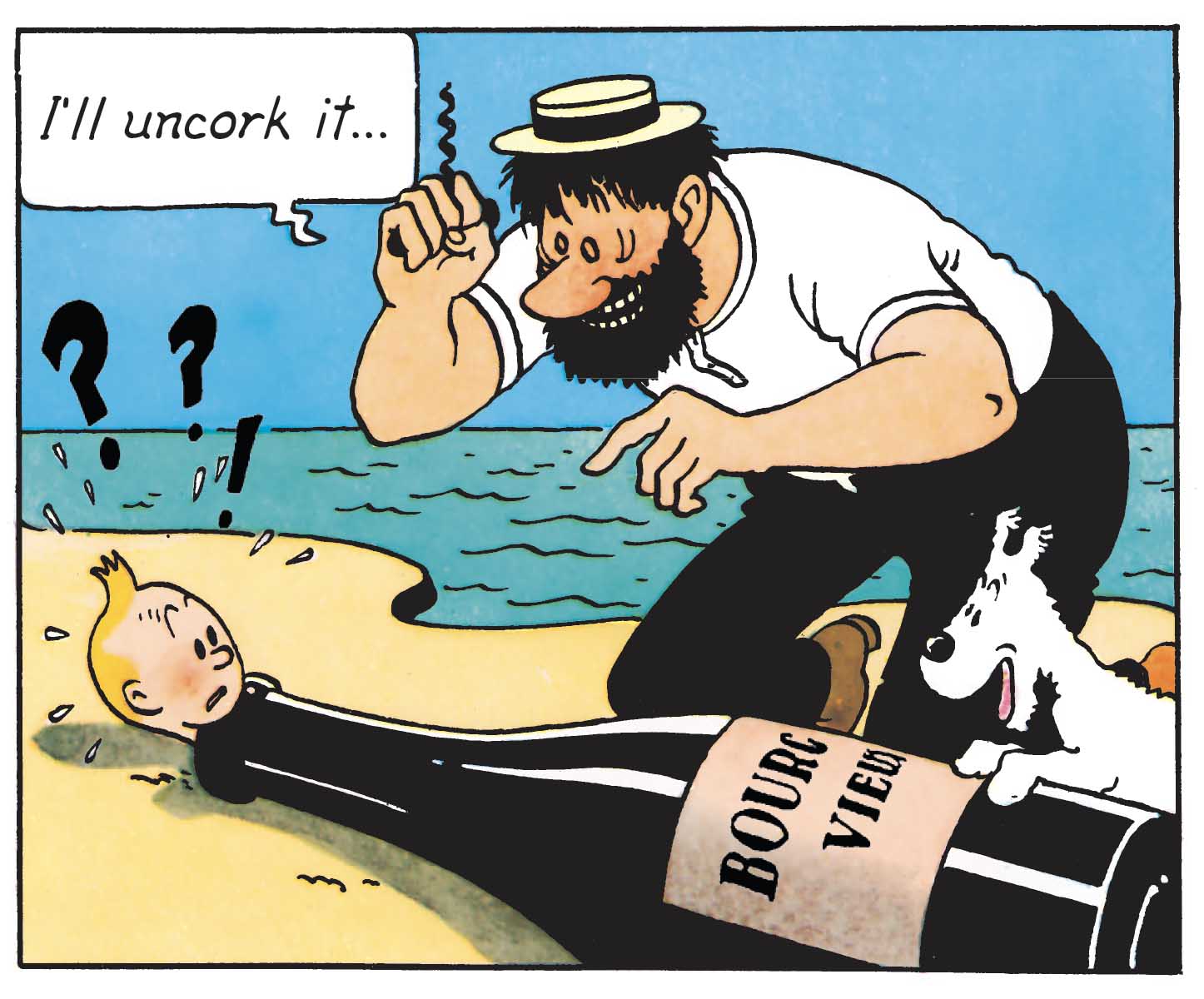
According to experts on the subject, Hergé, who came from Belgian Catholic scouting, conceived Tintin as a "modern knight" — a clean, sober, devoted boy. He is a humble hero, reflecting a deep moral ideal rooted in the collective imagination.
But let’s not jump to conclusions: Tintin is first and foremost a comic book hero, with all the elements that make up the adventurous spirit of a fearless explorer. Unlike many modern heroes, who are often complex or even tortured, Tintin is characterized by a simplicity that has sometimes been criticized. No past, no family, no romantic life — a character who is almost transparent.
As a universal figure, Tintin is not an individual in the full sense of the term; he is a moral archetype, a model for identification across all ages, contexts, and cultures. Even today, in 2025, younger generations continue to embrace him — even in distant Japan.
It is precisely this emotional neutrality that allows Tintin to endure. Behind his iconic quiff and charming expression lies a spirit eager for risk and adventure.
Yet, against all odds, this Tintin is no docile dove. He sometimes loses his temper... More than that, when his patience with Captain Haddock is stretched to its limits, he does not hesitate to put him back in his place. So, who said he was too bland?
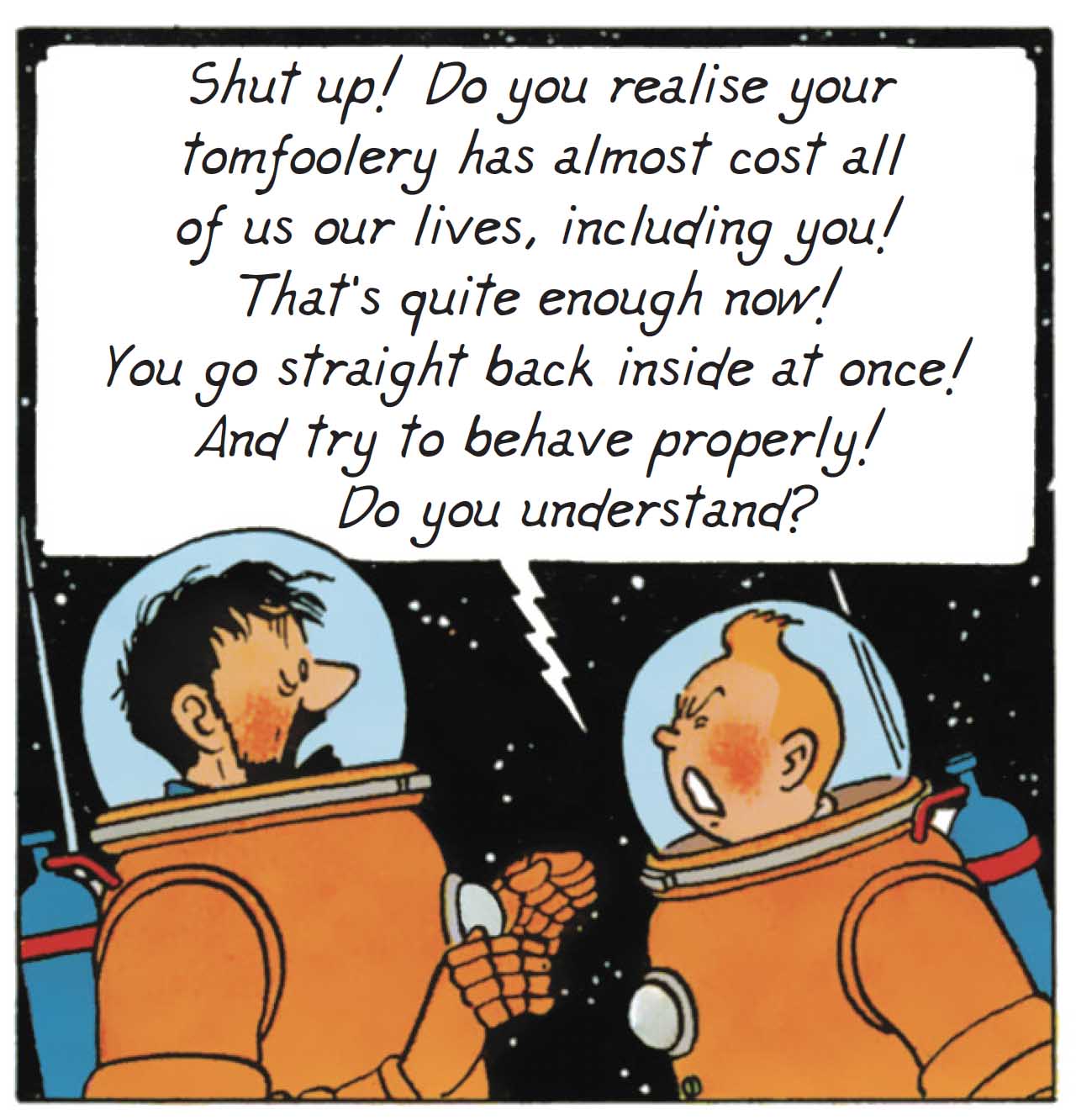
From Shadow to Discernment
And so we come to a thorny subject: what about the punches, then? Well, from the very beginning, Tintin has never been a cryptic or entirely pacifist hero.
The Belgian reporter knows how to move quickly and use his fists when he has no other way out of a dead-end situation. With the agility of youth, he takes on opponents much larger than himself and sometimes even manages to incapacitate several brutes at once.
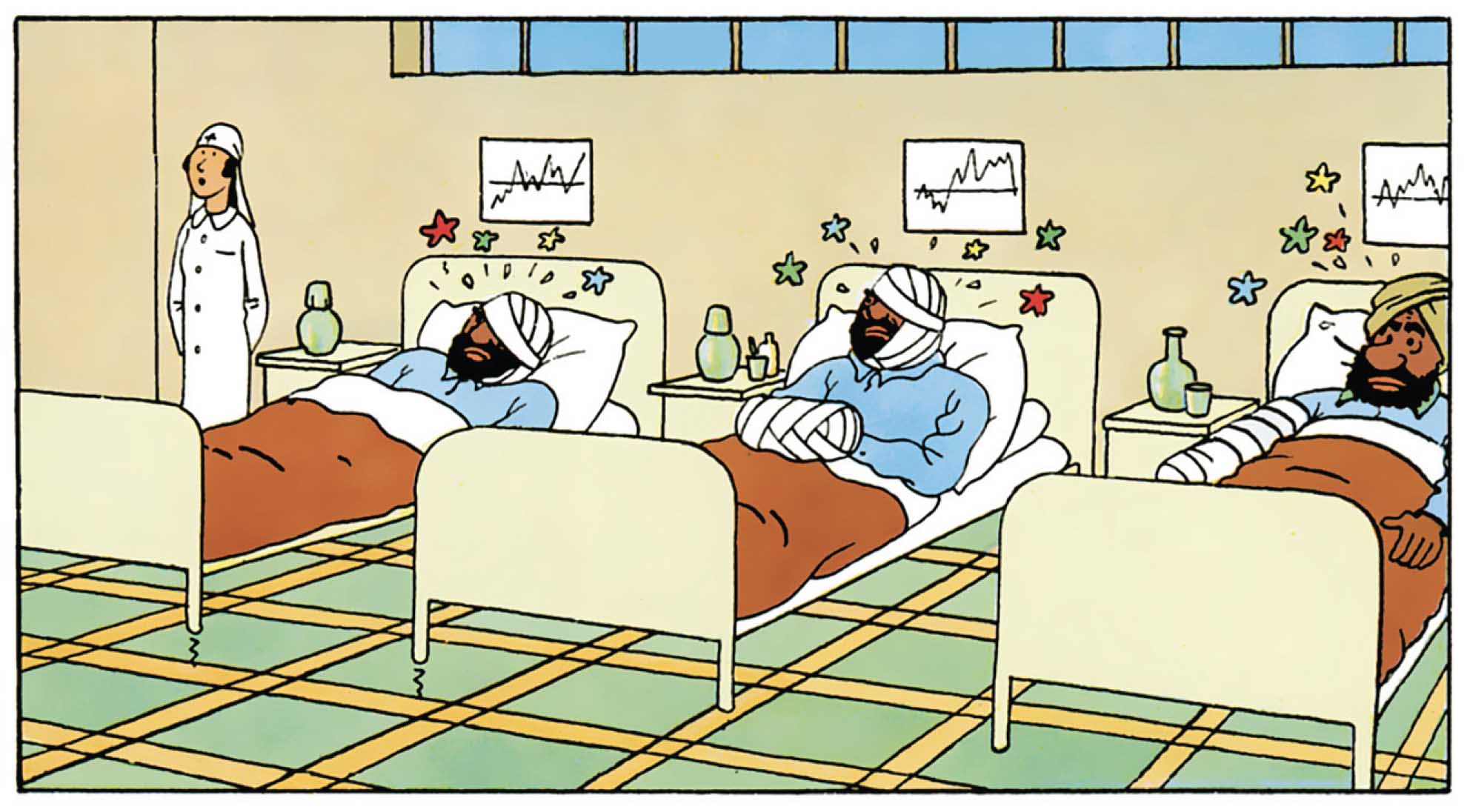
Fortunately, thanks to his sharp instincts — and, let's admit it, a fair share of luck — Tintin usually emerges victorious with little harm done.
On another note, Tintin has also become the target of cultural relativism. Understandably, times change, and contemporary perspectives have called into question certain albums from the past, notably Tintin in the Congo. Here, context is fundamental (see the file The Tintin in the Congo Affair or the Price of Glory).
In The Blue Lotus, Tintin undergoes a true moral transformation: he researches contemporary China, works closely with the Chinese artist Zhang Chongren, and refuses to indulge in easy stereotypes. This newfound awareness changes the spirit of the work: Tintin becomes a champion of cultural openness — a mediator.
At the heart of Tintin’s adventures, one of the deepest driving forces is friendship. It is not for abstract ideas that he risks his life, but for faces, bonds, and promises. In Tintin in Tibet, he braves the mountains to save Chang, even as the yeti lurks nearby. In Red Rackham’s Treasure, he supports Captain Haddock in his quest for identity.
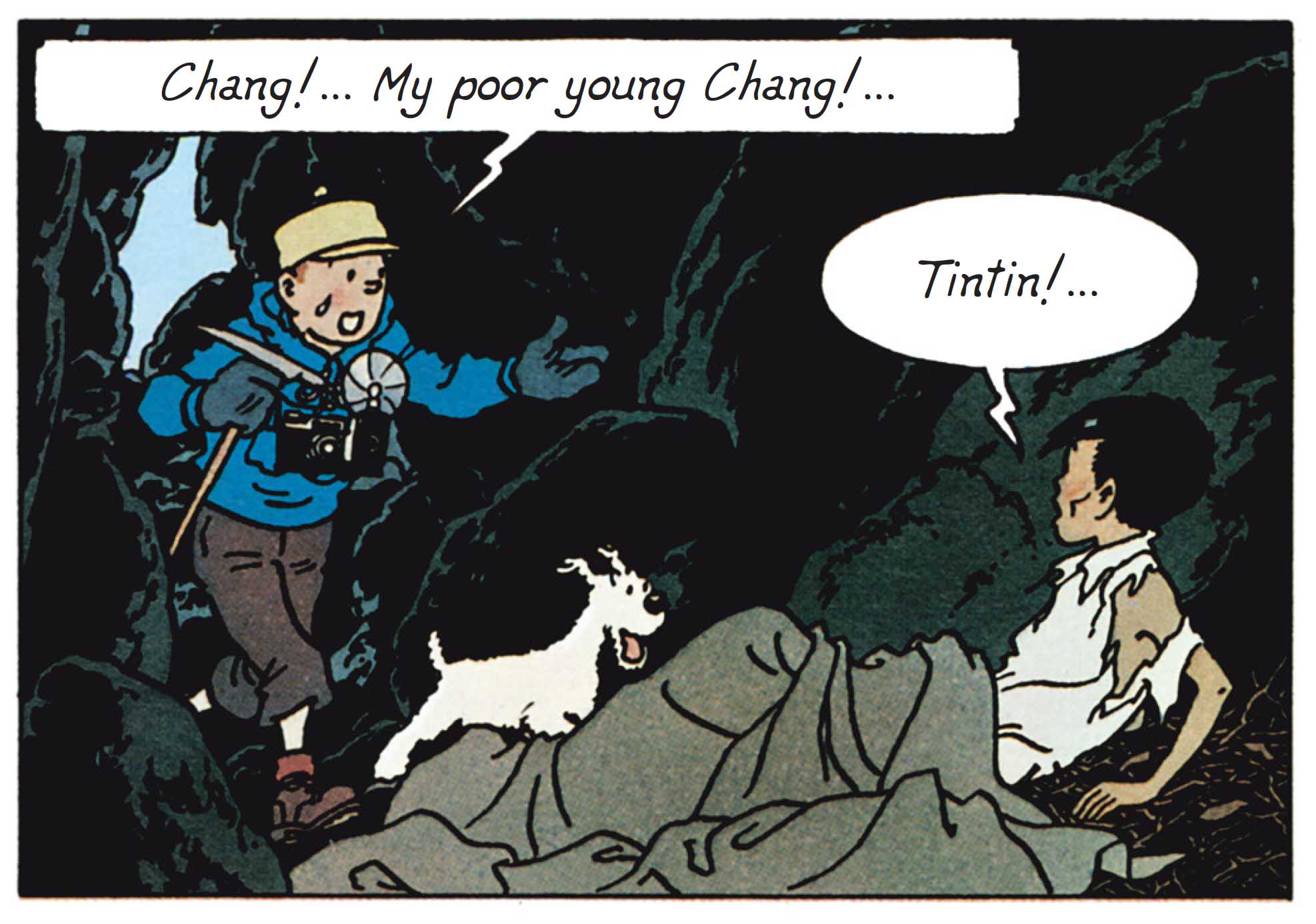
This loyalty to others grounds Tintin’s morality in an ethics of relationship, not ideology. He is not trying to save the world — he is trying not to abandon someone. And often, that is what real heroism looks like.
A Revealing Contrast
Tintin’s commitment is fueled by lucidity: not everything is always saved, some battles are lost, and doubt sometimes brushes against him. In this quiet resistance to the absurd, in this determination to reject resignation, a living ethic takes shape. It’s not a theoretical doctrine, but simple, repeated action, carried to the extreme by unwavering consistency.
Tintin’s enemies — Rastapopoulos, Allan, Colonel Sponsz, Dr. Müller, and others — are not merely comic-book villains. Each represents a form of moral corruption: absolute power, manipulation, contempt for the weak.
While his adversaries scheme and busy themselves with plotting harm or simply maintaining lucrative illegal businesses, Tintin takes a mischievous pleasure in foiling them — often through a scrap of paper, a fleeting clue, or the help of a minor character encountered along the way. And above all, he never kills, even when he would have every opportunity to do so. Scout’s honor!
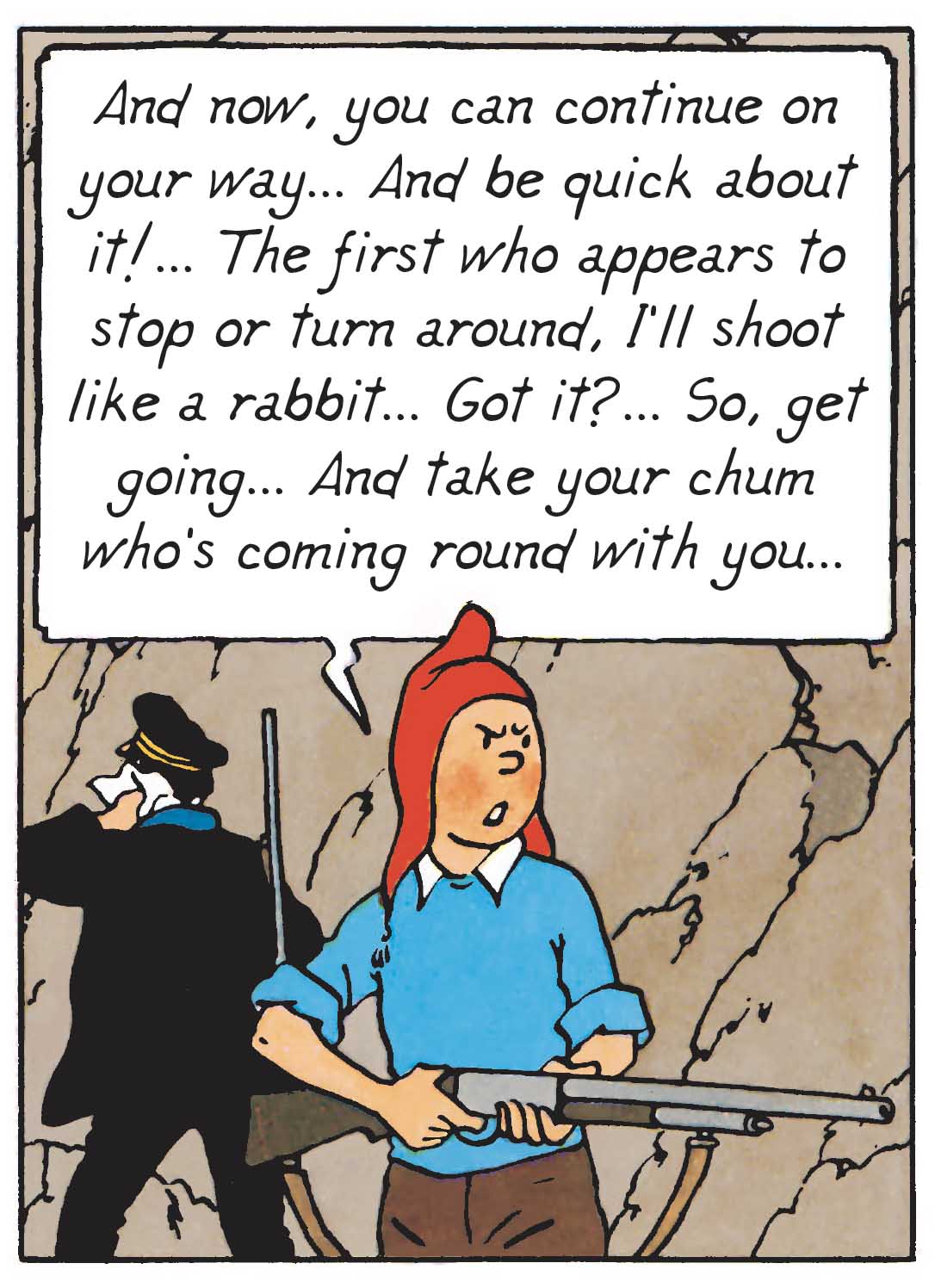
Why Tintin Today?
Tintin is also a character who shows deep respect for the world around him. Across several albums, we observe a profound reverence for nature, animals, and indigenous cultures. The Yeti in Tintin in Tibet is portrayed as a sensitive creature, worthy of compassion. Snowy, his faithful companion, is more than just a dog: he is almost a secondary conscience, a profound emotional bond that remains constant throughout the series.
This posture of humility toward otherness foreshadows many of today’s major ethical concerns: respect for all living beings, cultural diversity, and relational ecology.
In an era saturated with dark narratives and cynical, violent, or self-absorbed heroes, Tintin shines through with his light. He does not preach, but rather inspires by example — and that may well be what makes him more necessary than ever. In the eyes of younger generations, he embodies an accessible kind of morality: there is no need to be perfect — it is enough to remain faithful to one's conscience.
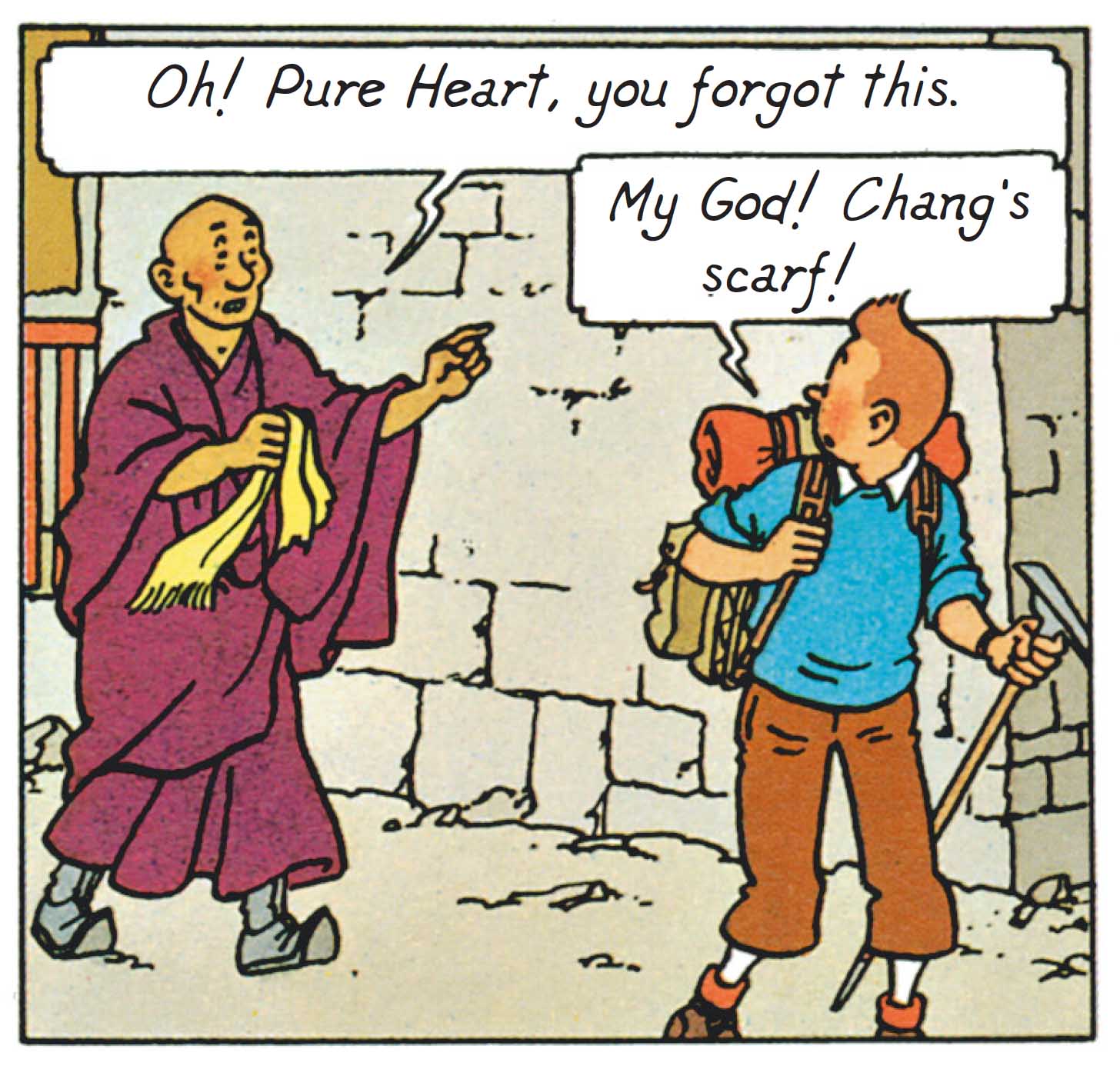
A Hero for Our Time?
As the seasons change and familiar landmarks blur, Tintin emerges as a figure strikingly in tune with our era, Tintin emerges as a surprisingly resonant figure. He embodies an active hope, a faith without dogma, and an integrity that has withstood the shifting sands of changing mentalities.
Our faithful traveling companion has weathered Captain Haddock’s grumblings, the bumbling antics of Thomson and Thompson, and, somehow, the eccentricities of Professor Calculus. Perhaps that is, in the end, Tintin’s true strength: through these imperfect, often comical bonds, he shows that quiet, patient, and generous loyalty can, without fanfare, make the world a little better.
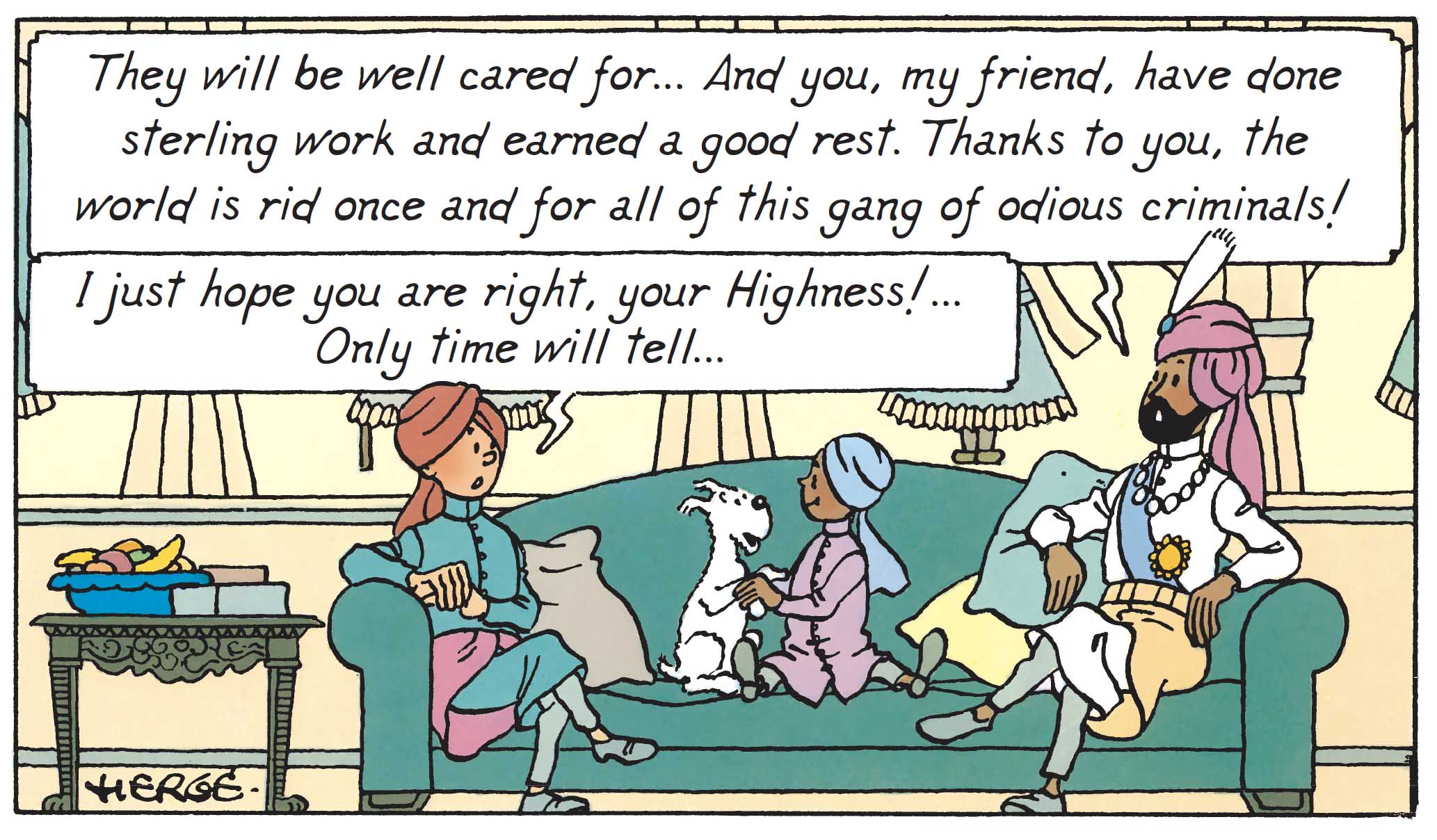
Texts and pictures © Hergé / Tintinimaginatio - 2025




 News
News Forums
Forums E-books
E-books

